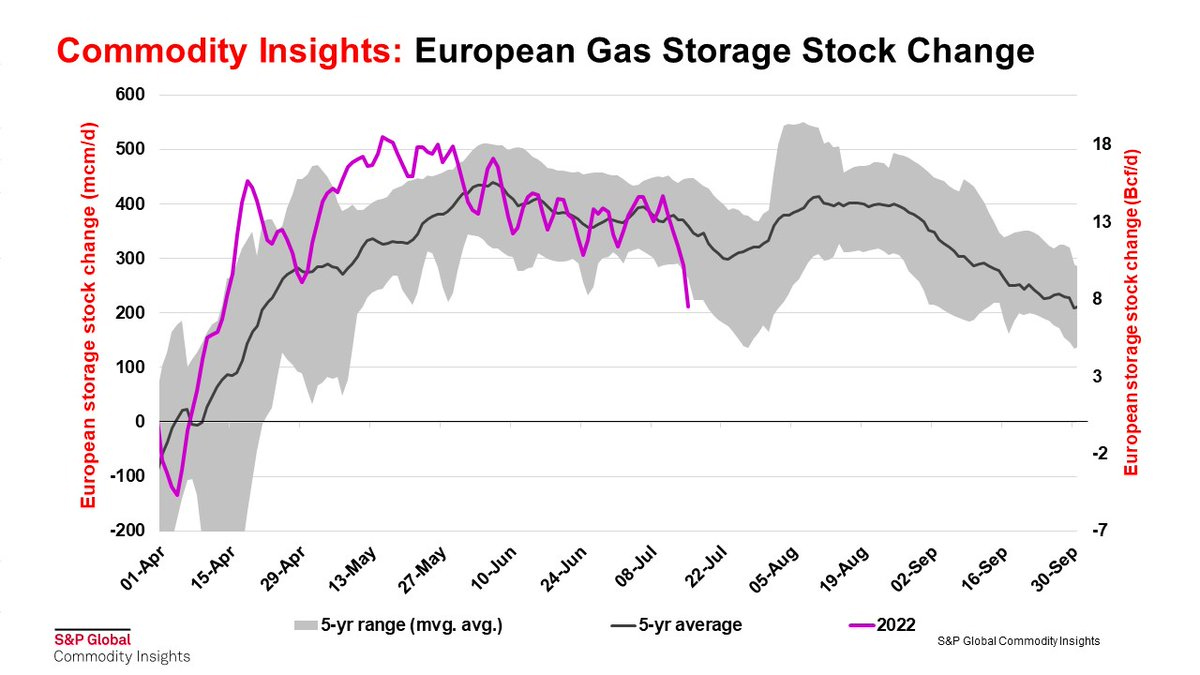Since the beginning of Russia’s planned Nord Stream 1 maintenance period (from July 11 to 22), European gas storage stock change (that is, the amount of gas being added to or detracted from storage) has dropped below historical averages. The y-axis shows the gas storage stock change that is typical at various dates throughout the year, which are listed across the x-axis. Today, Europe is adding significantly less gas to its storage than it has at this time over the past five years. In other words, this July's gas storage stock change is significantly below the five-year moving average (black line) and five-year range (gray band) registered in the past five Julys. The energy outlook going forward is not promising: The Russian state-owned energy giant Gazprom still claims that it cannot revamp Nord Stream 1 without a turbine from Canada and recently stated that they will cut gas flow to 20 percent of the pipe's capacity.

In response to Gazprom’s limited production and historically low rates of gas storage in Europe, European natural gas prices rose across the futures curve. These elevated gas prices (today and in the future) crush European manufacturers’ profit margins and discourage investment, and they could very well lead to a sharp growth slowdown across Europe and especially in Germany. Combined with a strengthening dollar and rising interest rates globally, an energy crunch in Europe would do no good for the global economy’s growth prospects.
Source: S&P Global Commodity Insights via James Huckstepp
Thomas Triedman, a sophomore at Yale, is a Summer 2022 Collegiate Associate at the Manhattan Institute
Interested in real economic insights? Want to stay ahead of the competition? Every Wednesday, e21 delivers a short email that includes e21 exclusive commentary and the latest market news and updates from around the Web. Sign up for the e21 Weekly eBrief.
Photo by Maksim Safaniuk/iStock
